Understanding the profound impact of pub culture on society is a fascinating journey through the lens of history, community, and human behavior. Pubs, as iconic as they are, have long been more than just places to quench thirst; they are cultural hubs that shape values, influence communication, and even mold personality. From their origins in ancient Britain to their evolution into vibrant social spaces, pubs have played a pivotal role in shaping societal norms and individual experiences. Whether it’s fostering connections among neighbors or reflecting broader cultural values, pub culture influences nearly every aspect of life, from health and religion to psychotherapy and daily interactions. In this exploration, we delve into the intricate ways pub culture has left its mark on identity, perception, and the very fabric of society.
Key Takeaways
- Historical Roots: Pubs trace back centuries, serving as traveler stops before becoming community hubs.
- Cultural Landmarks: Evolving over time, pubs reflect societal changes and are integral to local identities.
- Social Hubs: Pubs foster community connections, hosting events and casual meetups.
- Literary & Artistic Inspiration: Iconic settings in literature and art, contributing to British culture.
- Economic Drivers: Support local economies through employment and event hosting.
- Avoid Controversial Topics: Focus on light conversations to avoid tension.
- Engage Conversations: Use open-ended questions and storytelling to keep interactions lively.
- Beyond Drinks: Diverse offerings, dining, and cultural events define pubs’ multifaceted roles.
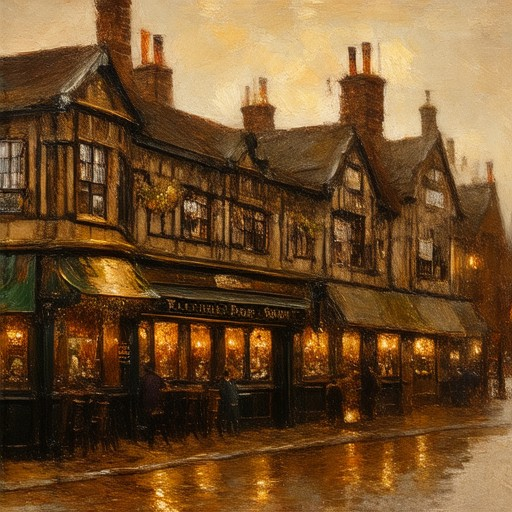
Where Does Pub Culture Come From?
Pub culture, a cornerstone of social interaction and heritage, traces its roots back to ancient times, evolving through centuries to become a vibrant part of global culture today. Here’s a journey through its origins:
Roman Taverns and Alehouses
The earliest predecessors to modern pubs were Roman taverns, known as “tabernae.” These establishments served as hubs for travelers, offering food, drink, and lodging. They laid the foundation for what would later become pubs, focusing on providing shelter and sustenance for those on the road.
The Medieval Period: Community Hubs
By the Middle Ages, alehouses began to replace these Roman taverns. These alehouses became central to both rural and urban communities, often serving as gathering places for locals. They were not just for drinking; they were spaces for socializing, storytelling, and even political discussions. Women played significant roles here too, often brewing the ale and managing the establishments.
The Rise of Modern Pubs
The Industrial Revolution marked a turning point. As people migrated to cities, public houses became more commercialized. Breweries grew in prominence, and pubs started serving a wider variety of beers. The addition of food menus in the late 19th century transformed pubs into more versatile social spaces, blending dining and drinking cultures.
A Cultural Phenomenon
Today, pubs have transcended their historical roots to become cultural landmarks. They reflect local identities, often featuring regional beers and traditional dishes. Pubs have also become spaces for live music, sports viewing, and community events, making them cornerstones of social life in many societies.
Dufferin Arms, a dedicated blog, delves deeper into the rich tapestry of pub culture, exploring its unique stories and social significance. Visit us at Dufferin Arms to discover the legacy and charm of pubs worldwide.
The Social Role of Pubs in British Culture
Pubs in the UK hold a cherished place in the nation’s social fabric, serving as vibrant community hubs and cultural landmarks. They are more than just places to enjoy a drink; they are integral to local life, traditions, and social interactions.
A Rich History
The tradition of the pub dates back centuries, with the earliest known alehouses appearing in the 12th century. Over time, pubs evolved from simple drinking establishments into social spaces that reflected the values and interests of their communities. Today, pubs remain a cornerstone of British culture, offering a unique blend of history, camaraderie, and local pride.
Community Hubs
In many small towns and villages, pubs act as the beating heart of social life. They are where neighbors gather to share stories, celebrate milestones, and forge connections. Whether it’s a quiet pint after work or a lively Sunday roast, pubs bring people together in ways that few other venues can.
- Local Gatherings: From birthday parties to wakes, pubs are often the settings for milestone celebrations that strengthen community bonds.
- Support Networks: Pubs can serve as informal support networks, providing a space for locals to offer advice or simply chat, fostering a sense of belonging.
- Charity Events: Many pubs host fundraising events for local charities, further embedding themselves into the lives of their communities.
Cultural and Traditional Significance
Pubs are not just about alcohol; they are cultural spaces that reflect the values of their communities. They often host live music, comedy nights, and sports screenings, becoming catalysts for shared experiences. Additionally, pubs play a role in preserving local traditions, such as hosting annual festivals or celebrating regional heritage.
Economic Impact
Pubs contribute significantly to the local economy, acting as vital players in the tourism industry and supporting local businesses. They employ countless workers and often feature locally-sourced goods and services, promoting sustainability and community self-reliance.
Challenges and Adaptations
Despite their enduring popularity, pubs face challenges such as changing drinking habits and increased competition from alternative entertainment options. However, innovative pubs are adapting by diversifying their offerings, such as offering gourmet menus, themed nights, and event spaces.
In conclusion, pubs in British culture are more than just places to drink—they are living, breathing community assets that foster social connections, celebrate local identity, and contribute to the vibrancy of everyday life.
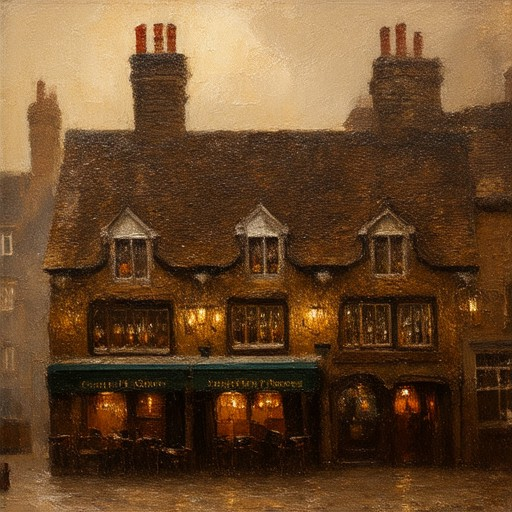
Understanding Pub Culture and Bar Culture
Pubs and bars are two distinct types of establishments that serve alcohol, but they differ significantly in their atmosphere, offerings, and cultural significance. Here’s a breakdown of the key differences:
Pub Culture
- Traditional Setting: Pubs typically have a long history, often dating back centuries, and are rooted in local communities.
- Community Focus: Pubs are known for their welcoming and inclusive environments, often serving as gathering spots for locals.
- Food and Drink: Many pubs offer a variety of beers, wines, and spirits, along with traditional pub fare like fish and chips or roast dinners.
- Atmosphere: Pubs generally have a cozy, inviting vibe, often with wooden interiors, dim lighting, and a relaxed atmosphere.
- Evening Social Scene: While some pubs can be lively in the evenings, many cater to a more laid-back, community-oriented crowd.
Bar Culture
- Variety of Drinks: Bars often feature a wider selection of alcoholic beverages, including craft cocktails, premium spirits, and an array of international beers.
- Nightlife Focus: Bars are frequently associated with a more vibrant, nightlife-focused scene, particularly in urban areas.
- Food Options: Some bars may offer limited food menus, often focusing on snacks or small plates, while others may not serve food at all.
- Modern Vibe: Bars can range from upscale lounges to trendy, high-energy venues, catering to diverse social crowds.
- Diverse Social Settings: Bars are popular for after-work gatherings, late-night outings, and special occasions, offering a more dynamic social environment.
Comparison Table
| Aspect | Pub | Bar |
|---|---|---|
| Historical Context | Strong local ties | More modern, varied |
| Primary Purpose | Social and community | Social and entertainment |
| Food Availability | Usually available | Varies by establishment |
| Drink Variety | Traditional beers and spirits | Wider range, including craft cocktails |
| Atmosphere | Cozy, traditional | Modern, trendy |
In summary, pubs emphasize tradition, community, and a slower-paced enjoyment of drinks and food, while bars focus on variety, nightlife, and a more dynamic social scene. Both cultures contribute to the rich tapestry of social spaces around the world.
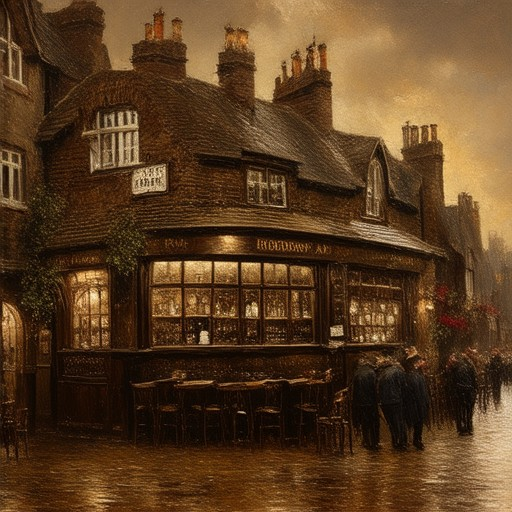
The Importance of Pubs
Pubs hold a cherished place in British culture, serving as more than just establishments to quench thirst. Their historical roots trace back centuries, originally serving as stops for travelers and later evolving into vibrant community hubs.
Historical Significance
With origins dating back to medieval times, pubs have historically been vital social spaces. They’ve provided shelter and refreshment to weary travelers, fostering a sense of community along trade routes and in small villages. Over time, these inns and taverns became cultural landmarks, reflecting the changing social dynamics of their eras.
Social and Cultural Roles
Today, pubs remain central to social interactions. They act as gathering spots for celebrations, casual meetings, and community events. Pubs often feature live music, darts, and other entertainments, making them hubs for leisure and camaraderie. They also serve as spaces for local discussions, often hosting town meetings or charity events.
Literary and Artistic Connections
Pubs have inspired countless writers and artists. From Charles Dickens to modern-day authors, many have drawn creative inspiration from the unique atmosphere of public houses. These establishments have become settings for literary works, contributing to Britain’s rich cultural tapestry.
Economic Impact
Pubs contribute significantly to local economies. They employ numerous individuals and support nearby businesses through trade. By hosting events and gatherings, they drive foot traffic, benefiting the wider community. This economic role underscores their importance beyond mere social spaces.
What Three Things You Don’t Talk About in a Pub?
When enjoying a night out at the pub, it’s important to keep the conversation light and enjoyable. Here are three topics to steer clear of:
- Politics : Debates on hot-button issues can quickly escalate, leading to tension. Keep it neutral and focus on shared interests.
- Sports : While many enjoy discussing their favorite teams, it’s best avoided to prevent disagreements, especially when rival fans are present.
- Religion : Religious discussions can be sensitive and may not be appropriate for all company.
Why These Topics Are Best Avoided
These subjects can easily lead to arguments or uncomfortable moments. Instead, try talking about shared experiences or fun anecdotes from past pub visits.
How to Keep the Conversation Flowing
Ask open-ended questions, share interesting facts, and stay positive. This approach ensures everyone feels included and the atmosphere remains friendly.
For more insights into pub culture, explore our pub culture section and learn how to make the most of your next visit.
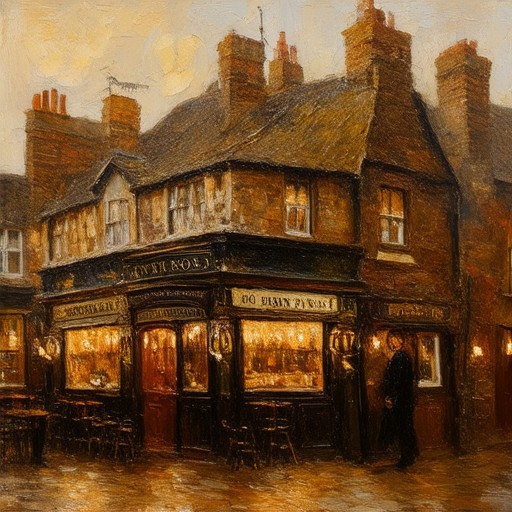
Do Pubs Serve a Purpose?
Pubs are vibrant social hubs designed to bring people together, offering much more than just a place to grab a drink. Their primary purpose revolves around fostering community connections, celebrating culture, and providing a space for relaxation and enjoyment. Here’s a breakdown of their multifaceted role:
- Social Gathering Space :
Pubs act as gathering spots for friends, family, and neighbors. They often host events like trivia nights, live music, or sports viewings, making them hubs of social interaction. 1 . - Community Cornerstones :
Beyond just serving drinks, pubs play a vital role in local communities. They often support charitable efforts, host local events, and become part of the neighborhood identity. 2 . - Cultural Celebrations :
Many pubs showcase diverse cultures through festivals, themed parties, and traditional celebrations, making them a reflection of the communities they serve. 3 . - Diverse Beverage Offerings :
Pubs aren’t limited to just beer. They offer a variety of alcoholic and non-alcoholic beverages, catering to different tastes and preferences. 4 . - Casual Dining Experience :
While primarily known for alcohol, many pubs also provide casual dining options, serving appetizers, burgers, and other light meals. 5 . - Historical Significance :
Pubs often hold historical value, serving as meeting places for generations and preserving local history. 6 .
In essence, pubs are more than just bars—they are community centers, cultural landmarks, and social spaces that contribute to the vibrancy of neighborhoods. Whether you’re looking to unwind, connect with others, or immerse yourself in local culture, pubs offer a unique and welcoming environment. 7
Explore the rich history and vibrant culture of pubs through Dufferin Arms , where the legacy and charm of these institutions are celebrated and shared.

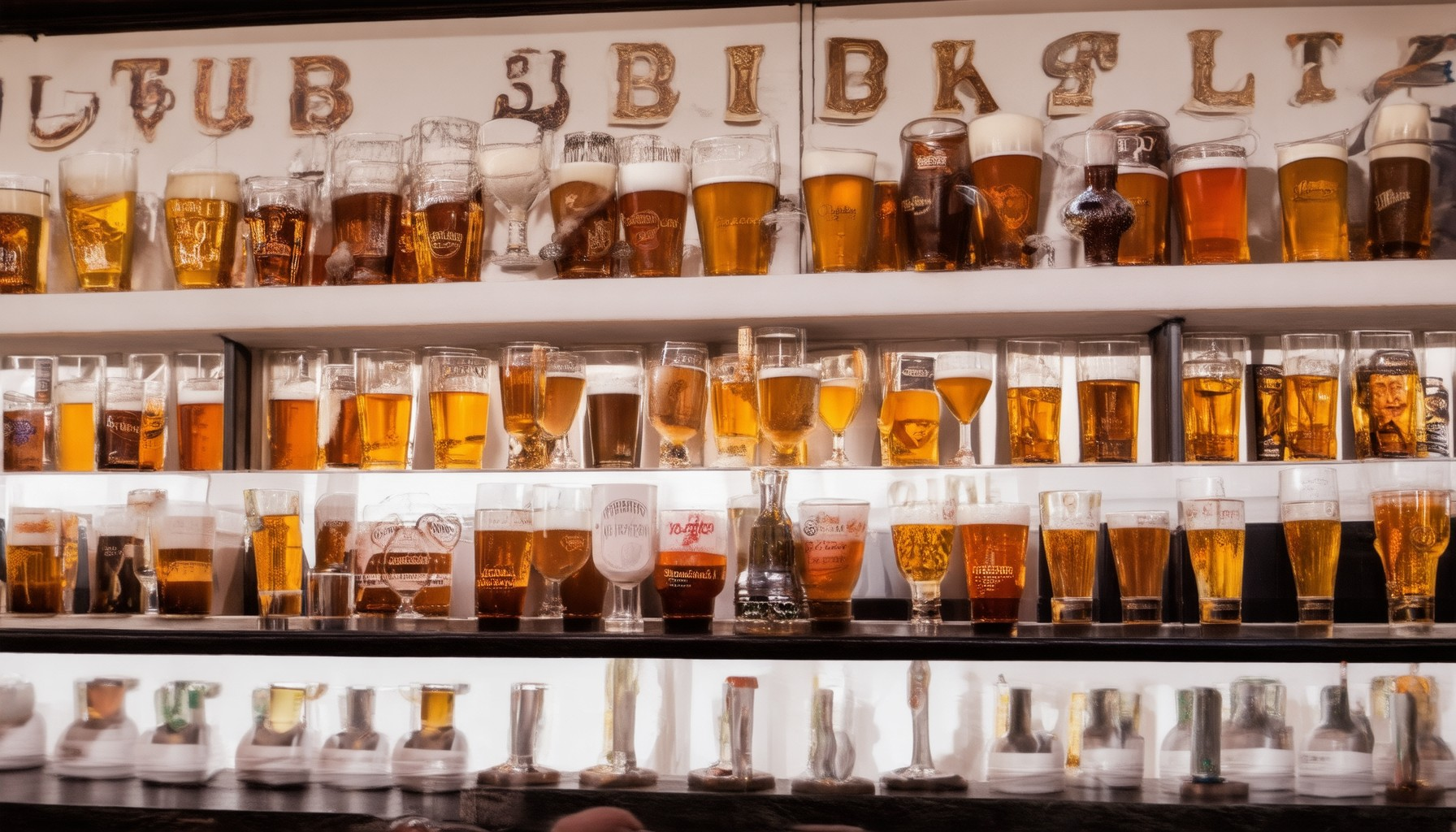
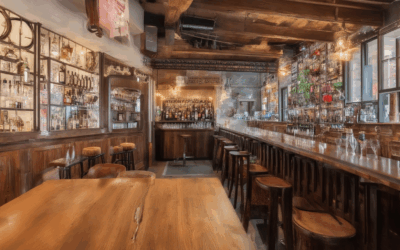
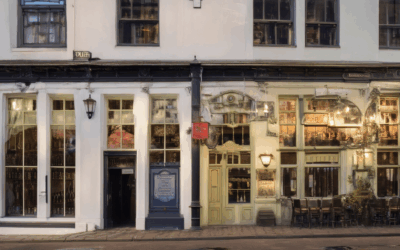
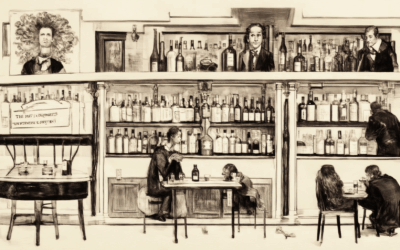
0 Comments